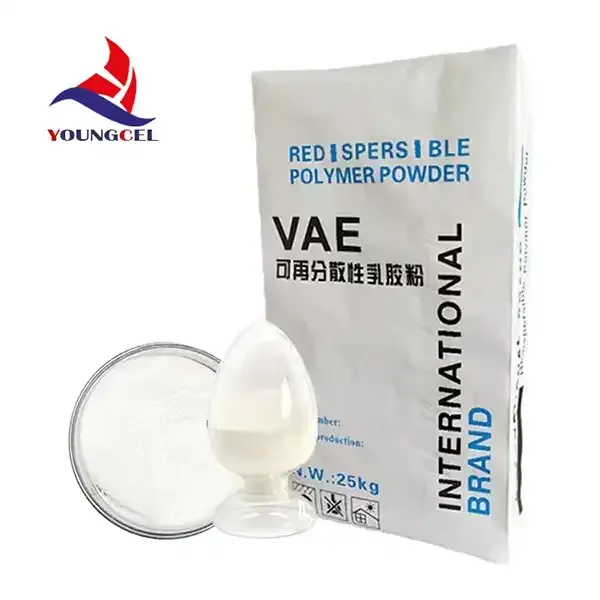Understanding Cellulose Ether The Case of Hydroxyethyl Methyl Cellulose (HEMC)
Cellulose, a natural polymer predominantly found in the cell walls of plants, has garnered immense attention across various industries due to its versatility and functionality. Among the many derivatives of cellulose, Hydroxyethyl Methyl Cellulose (HEMC) stands out for its unique properties and applications. This article explores the characteristics, applications, and advantages of HEMC, highlighting its significance in various fields such as construction, food, pharmaceuticals, and cosmetics.
What is Hydroxyethyl Methyl Cellulose?
Hydroxyethyl Methyl Cellulose is a non-ionic cellulose ether that is synthesized through the chemical modification of cellulose. It retains the backbone structure of cellulose while introducing hydroxyethyl and methyl groups. This modification enhances its solubility in water and provides unique rheological properties, making it an essential ingredient in numerous formulations.
HEMC is typically available in powdered form and can easily dissolve in both hot and cold water, forming a transparent, viscous solution. The degree of substitution of methyl and hydroxyethyl groups can be adjusted during the manufacturing process, resulting in various grades of HEMC that can achieve specific functionalities suitable for different applications.
Applications of HEMC
1. Construction Industry HEMC is extensively used as a thickener and water-retaining agent in cement-based formulations, such as mortars and plasters. Its ability to improve workability and extend open time makes it invaluable for both residential and commercial construction projects. By enhancing adhesion and preventing cracking, HEMC contributes to the durability and overall quality of construction materials.
2. Food Industry In the food sector, HEMC serves as a food additive. It acts as a stabilizer, thickener, and emulsifier, ensuring optimal texture and consistency in various food products. From sauces and dressings to desserts and baked goods, HEMC improves mouthfeel, extends shelf life, and helps maintain the desired viscosity throughout the product’s life cycle.
cellulose ether hemc

3. Pharmaceuticals HEMC is also utilized in pharmaceutical formulations, particularly as a binder and emulsifier in tablet and capsule production. Its unique properties allow for controlled release of active ingredients, enhancing drug bioavailability. In addition, HEMC's compatibility with various excipients makes it suitable for a wide range of pharmaceutical applications, from oral medications to topical ointments.
4. Cosmetics and Personal Care The cosmetics industry benefits from HEMC's thickening and film-forming properties. It is often incorporated into skin care products, shampoos, and conditioners, providing improved texture and enhanced spreadability. HEMC also helps stabilize emulsions, ensuring that products remain homogenous and effective over time.
Advantages of HEMC
One of the most notable advantages of HEMC is its non-toxic, environmentally friendly nature. As a cellulose derivative derived from renewable resources, it poses minimal risk to human health and the environment compared to synthetic alternatives. Furthermore, HEMC is exceptionally versatile, allowing for modifications that tailor its properties to meet specific industrial needs.
Another significant benefit is its excellent water retention capabilities, which are particularly valuable in construction and food applications. HEMC helps retain moisture, reducing the risk of cracking in building materials and enhancing the freshness of food products.
Moreover, HEMC’s emulsifying and thickening properties offer unique advantages in pharmaceuticals and cosmetics, contributing to the stability and effectiveness of various formulations.
Conclusion
Hydroxyethyl Methyl Cellulose (HEMC) represents a remarkable advancement in the use of cellulose derivatives across multiple industries. Its unique combination of properties, including solubility, viscosity, and non-toxic nature, make it a vital ingredient in construction, food, pharmaceuticals, and cosmetics. As industries increasingly prioritize sustainability and eco-friendliness, HEMC stands out as a versatile and reliable option, demonstrating the continued importance of cellulose-derived products in our modern civilization.
-
Rdp Powder: Key Considerations for Wholesalers in the Building Materials IndustryNewsJul.08,2025
-
Key Considerations for Wholesalers: Navigating the World of Hpmc - Based ProductsNewsJul.08,2025
-
Hpmc Detergent: Key Considerations for WholesalersNewsJul.08,2025
-
Key Considerations for Wholesalers: China Hpmc For Tile Adhesive, Coating Additives, Concrete Additives, and MoreNewsJul.08,2025
-
Crucial Considerations for Wholesalers: Navigating the World of Construction MaterialsNewsJul.08,2025
-
Key Considerations for Wholesalers Sourcing Additive For Cement, Additive For Concrete, Additive For Putty from Additive Manufacturer Shijiazhuang Gaocheng District Yongfeng Cellulose Co., Ltd.NewsJul.08,2025




